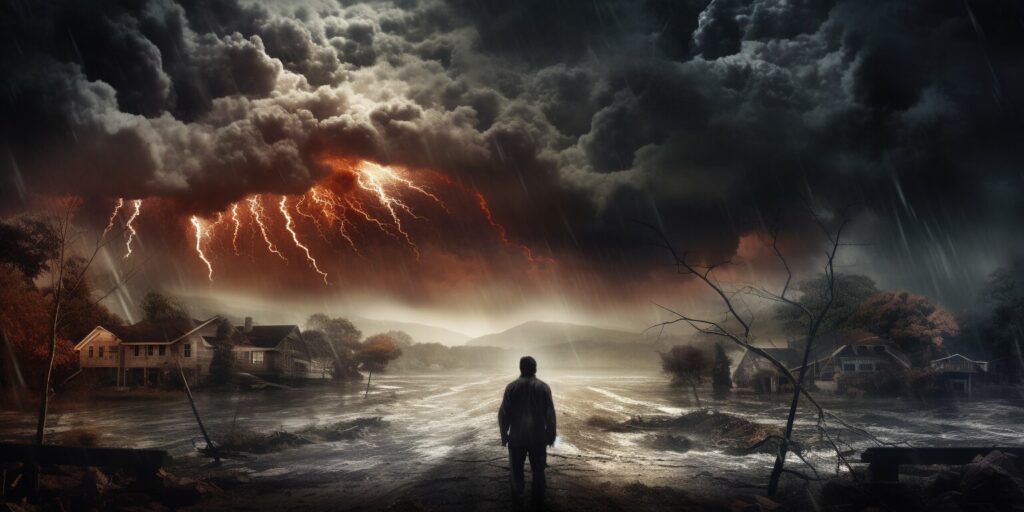Survivor guilt is a complex psychological phenomenon that can arise in the aftermath of natural disasters and tragedies. It is a deeply rooted feeling of guilt experienced by those who have survived while others have suffered or lost their lives. Coping with survivor guilt is crucial for individuals affected by such events, as it can have a profound impact on their emotional well-being and mental health.
In this article, we will explore what survivor guilt is, how it manifests in individuals, and why understanding and addressing it is essential in the healing process. We will also provide valuable insights and strategies for coping with survivor guilt, helping survivors navigate the challenging journey of recovery.
By delving into survivor guilt and its profound connection to grief, we aim to shed light on the intricate emotional processes that survivors face. Recognizing the symptoms of survivor guilt is a vital step in acknowledging and addressing this challenging experience.
Join us as we explore the complexities of survivor guilt, understand its impact on individuals, and learn effective ways to cope and heal. By fostering understanding and providing practical guidance, we hope to empower survivors in their journey towards emotional well-being and resilience.
What is Survivor Guilt?
Survivor guilt is a psychological phenomenon that occurs in individuals who have survived natural disasters or tragedies while others around them have not. It is characterized by guilt, remorse, and a sense of responsibility for surviving when others did not.
Survivor guilt syndrome can be particularly prevalent in individuals who have experienced traumatic events, such as plane crashes, mass shootings, or natural disasters like hurricanes or earthquakes. The guilt after surviving can be overwhelming and may lead to a range of emotional and psychological challenges.
People who experience survivor guilt often question why they survived while others perished. They may feel unworthy of surviving or believe they should have done more to save others. These feelings can be accompanied by a deep sense of sadness, anger, anxiety, and even depression.
It is important to recognize that survivor guilt is a normal response to surviving a catastrophic event. However, if left unaddressed, it can have a negative impact on an individual’s mental health and overall well-being. Understanding survivor guilt and its emotional and psychological impact is crucial in helping survivors cope and heal.
Coping with Survivor Guilt
Survivor guilt can be a challenging and overwhelming experience for those who have lived through natural disasters or tragedies. However, there are strategies and coping mechanisms that can help individuals in dealing with and overcoming survivor guilt.
Here are some practical tips and psychological techniques that can aid the healing process:
1. Seek Professional Help:
Consider reaching out to a mental health professional experienced in trauma and grief counseling. They can provide valuable guidance and survivor guilt treatment to help you navigate through the complex emotions associated with survivor guilt.
2. Connect with Support Networks:
Joining support groups or online communities with individuals who have gone through similar experiences can be immensely helpful. Sharing your feelings, fears, and struggles with others who understand can provide validation, comfort, and a sense of belonging.
3. Practice Self-Care:
It is crucial to prioritize self-care when coping with survivor guilt. Engage in activities that bring you joy and relaxation, such as exercise, meditation, journaling, or spending time in nature. Taking care of your physical and emotional well-being can help in building resilience and overcoming survivor guilt.
4. Challenge Negative Thoughts:
Survivor guilt often stems from irrational thoughts or beliefs about responsibility and worthiness. Challenge these negative thoughts by examining the evidence supporting them and replacing them with more rational and compassionate perspectives. Cognitive-behavioral therapy techniques can be particularly effective in this process.
5. Honor the Memory of the Lost:
Instead of succumbing to guilt, find meaningful ways to honor the memory of those who did not survive. This could involve volunteering, participating in charitable causes, or creating a memorial. You can transform survivor guilt into a force for good by channeling your feelings into positive actions.
Remember that overcoming survivor guilt takes time and patience. Be kind to yourself and allow yourself to grieve and heal at your own pace. With the support of therapy, community, and self-care, you can gradually move towards a place of acceptance and peace.
Survivor Guilt and Grief
Survivor guilt can intertwine with the grieving process after experiencing a natural disaster or tragedy. The complex emotions that survivors may face can complicate their ability to navigate their grief while dealing with survivor guilt.
The aftermath of a traumatic event can leave survivors grappling with a range of feelings, including guilt for having survived when others did not. This guilt often arises from a genuine sense of responsibility and a question of why they were spared while others suffered.
Grief, on the other hand, is a natural response to loss, encompassing a varied range of emotions such as sadness, anger, confusion, and even relief. For survivors experiencing survivor guilt, the grieving process can be further complicated, as they may struggle to fully process their own emotions while also grappling with feelings of guilt.
It is crucial to acknowledge and address both survivor guilt and grief in order to embark on a healthy healing journey. It is essential for survivors to understand that their emotions are valid and that it is normal to feel a mixture of guilt and grief in such circumstances.
By seeking support from loved ones, mental health professionals, or support groups, survivors can find a safe space to express their feelings and work through their guilt and grief. Engaging in self-care practices, such as practicing mindfulness and participating in activities that bring joy, can also promote healing and aid in processing complex emotions.
Ultimately, recognizing the interconnectedness of survivor guilt and grief is crucial in facilitating the healing process for individuals affected by natural disasters and tragedies. Through self-awareness, understanding, and the support of others, survivors can gradually navigate their guilt and grief, allowing themselves the opportunity to heal and rebuild their lives.
Recognizing Survivor Guilt Symptoms
Survivor guilt can have profound effects on individuals who have experienced natural disasters or tragedies. Understanding the common symptoms and signs of survivor guilt is crucial in order to provide adequate support and intervention. By recognizing these symptoms, both survivors themselves and those around them can take appropriate steps toward healing and recovery.
Emotional Symptoms:
- Overwhelming feelings of guilt and self-blame
- Depression, sadness, or numbness
- Anxiety and excessive worrying
- Anger or irritability
- Shame or embarrassment
- Difficulty experiencing joy or happiness
Physical Symptoms:
- Insomnia or disturbed sleep patterns
- Changes in appetite, including overeating or loss of appetite
- Fatigue and low energy levels
- Headaches or migraines
- Gastrointestinal issues
Behavioral Symptoms:
- Withdrawal from social activities and relationships
- Difficulty concentrating or making decisions
- Avoidance of situations or places that trigger survivor guilt
- Engaging in self-destructive behaviors, such as substance abuse
- Excessive risk-taking or self-harming behaviors
It’s important to remember that survivor-guilt symptoms can vary from person to person, and not all individuals may experience the same set of symptoms. If you or someone you know exhibits these symptoms after surviving a traumatic event, seeking professional help and support can make a significant difference in managing survivor guilt and promoting healing.
Final Thoughts
Survivor guilt is a complex and often overwhelming emotional response experienced by individuals who have survived natural disasters and tragedies. Throughout this article, we have explored the concept of survivor guilt, its impact on mental health, and strategies for coping with it.
It is crucial to acknowledge that survivor guilt is a natural and valid emotional reaction. Many survivors struggle with feelings of guilt, questioning why they were spared while others were not. By recognizing and accepting these emotions, individuals can begin the healing process.
Coping with survivor guilt requires seeking support from loved ones, friends, and mental health professionals. Sharing experiences, feelings, and thoughts with others who have gone through similar situations can provide a sense of validation and understanding.
Additionally, practicing self-care, engaging in therapy, and participating in support groups can contribute to overcoming survivor guilt. It is important to remember that everyone’s healing journey is unique, and there is no right or wrong way to cope.



